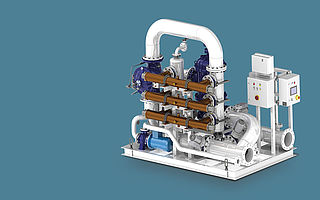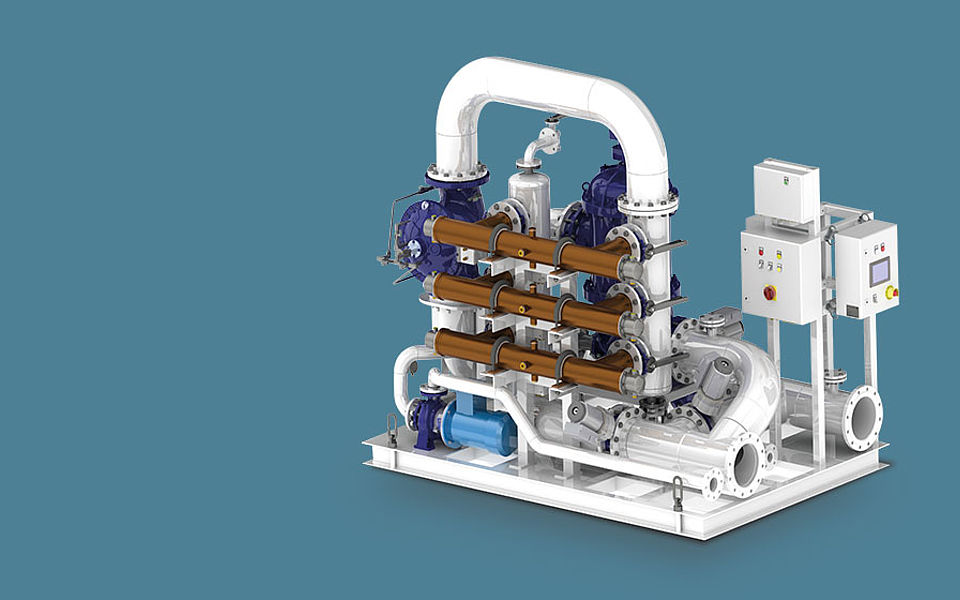Optimarin has signed contracts with Wisby Tankers and Hoëgh Autoliners to install its market proven Optimarin Ballast System (OBS) on five existing vessels. The agreement, which comes six months after the Norwegian ballast water treatment (BWT) specialist became the first company to win USCG approval, will see Optimarin fitting units on three bitumen tankers for Wisby and two Hoëgh Autoliners RoRo ships.
With a fleet of 19 advanced vessels, Wisby Tankers is a niche leader, utilising smaller tankers for European trades and its larger vessels, including the bitumen carriers, for worldwide routes. Hoëgh Autoliners, boasting over 50 advanced vessels, is an established global leader in the RoRo segment.
Bearing in mind the trading patterns of the two, Optimarin CEO Tore Andersen says complete global compliance was of paramount importance:
“Any shipowner looking for optimal flexibility for their fleets must install BWT systems that are compliant with the very strictest regulations, which, in this case, are those of the USCG,” he states. “Our technology leads the way in compliance, as well as effective and environmentally friendly operation, and that is a key selling point for forward thinking shipowners.
“In addition, the modular nature of OBS makes it easy to retrofit on any vessels – even those where space is of an absolute premium, such as it is on these specialist ships. That was crucial for both Wisby and Hoëgh Autoliners, as it will be for all companies looking to ensure their ships comply with the IMO’s ratified Ballast Water Management convention.
“The retrofitting of systems is a business area that is going to explode very soon. Industry sources expect over USD 45billion to be spent in the sector in the coming five years. And we, in conjunction with our global engineering partners, know it like no other.”
The tasks, when completed later this year, will take the total number of Optimarin retrofits beyond the 110 mark. The three Wisby Tankers will see 500 m3 systems installed, while the Hoëgh Autoliners vessels will install capacities of 344 m3 and 500 m3. All systems utilize powerful 35kW UV lamps to ensure the elimination of all potentially invasive waterborne organisms.
Optimarin works in partnership with Goltens, Zeppelin Power Systems and shipyards worldwide to install OBS on both existing vessels and newbuilds. The firm has so far received orders for over 500 systems, with more than 400 already delivered.
“The market is now fully aware that installing BWT systems is not an option, it’s a must,” Andersen adds. “To ensure that fleets sail safely, shipowners must identify technology that is compliant, trusted, easy to install, operate and maintain, and fits their individual needs.
“This is the time to move on this key decision, thus avoiding any potential installation bottlenecks. I’d urge companies to plan the best, safest and most compliant way forward for their vessels right now.”
Optimarin has been dedicated to the development of BWT systems since 1994, becoming the first ever company to install a commercial system in 2000, on board cruise ship Princess Regal. 2016 was the firm’s most successful ever year in business, winning contracts for over 120 BWT units.
Alongside approval from IMO and USCG, OBS is certified by a comprehensive range of classification organisations, including DNV GL, Lloyd’s, Bureau Veritas, MLIT Japan, and American Bureau of Shipping. Customers include Fincantieri Bay Shipbuilding, Saga Shipholding, The Royal Netherlands Navy, Atlantis Tankers, Vard Group, Solvang ASA, and Carisbrooke, amongst others.

